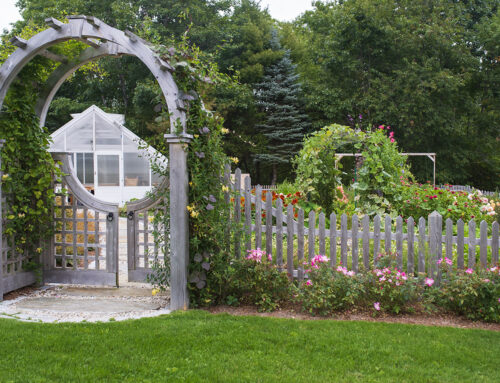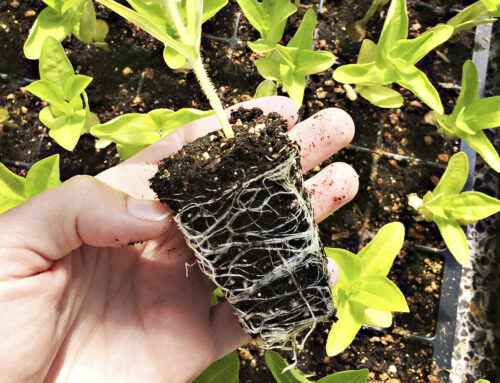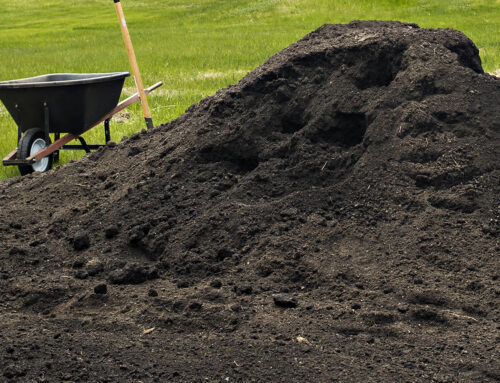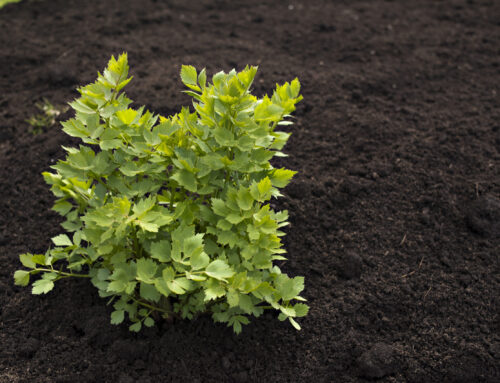Mulches are essential to keeping your garden healthy and thriving. Want to know why? Well, welcome to the My Favorite Mulch Game, where I’m going to share why this mulch stuff is so serious and which tops my list.

Why everyone should mulch
- Who hates weeds? I think every gardener just raised their hands on that one. Mulching your plants reduces weeds by blocking out sunlight, so the weed seed can’t germinate in the first place. It also makes it difficult for weed seed traveling in the wind to settle in the soil and establish themselves.
- Another point in favor of mulching is, they keep the soil and root cool. Not only does it prevent the sun from cooking tender roots, mulch also helps insulate plants and their root systems from extreme temperature fluctuations. For example, when growing hardback garlic in the fall, you need to mulch it heavily so the bulb and its roots are protected from freezing temperatures and thaw cycles.
- Mulch also helps maintain consistent soil moisture. Daily evaporation can suck so much water away from your plants and garden soil. Stop the dehydration with a layer of mulch. Insulating the moisture in the ground, mulch keeps your garden well hydrated.
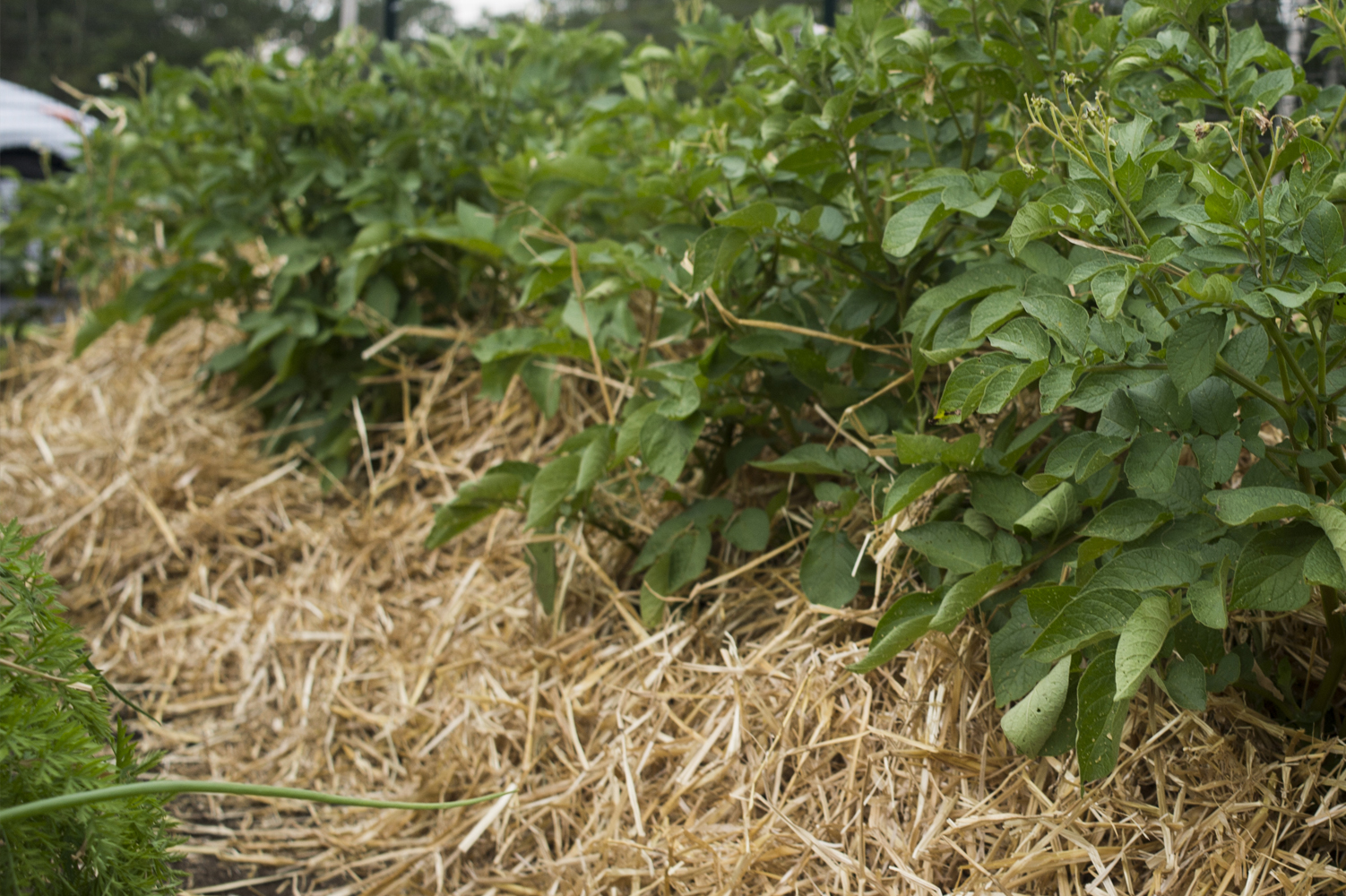
- In my mind, one of the biggest reasons to mulch is the reduction of transmission of soil-borne disease. Oh yes. Every time it rains, water showers down to the soil, bouncing back up into the leaf canopy. Taking with it, fungi and other soil-borne diseases, splashing it all over your leaves. Once on your plants, these diseases are difficult to treat. Mulch acts as a dispersal system. When rain hits your mulch layer, rather than straight soil, it disperses and scatters the water into smaller raindrops, catching them in its fibers. So no disease pops up in your garden plants.
- Mulch prevents soil erosion. Which is especially useful when gardening in mounded beds. Throughout the season rain and water slowly washes away soil. Mulch precludes this erosion of the soil.
- I cannot forget to include how organic mulches enrich soil structure as it breaks down and protect earthworms and other beneficial microrganisms living in the soil. Over time organic mulches will break down, and be incorporated into the soil, adding valuable organic matter and feeding the soil microbes … which in turn turn compost and mulch into nutrients to feed your garden.
- And it looks pretty!
So really, mulch should be a no-brainer in any garden. Now the questions becomes, which one to use.
The My-Favorite-Mulch Game
Seaweed.
Let’s begin by mentioning it’s free! If you live in a coastal area and have access to beached, dry seaweed—not touching the ocean, go and get yourself some of this good stuff!

It does everything a good mulch should do AND since it’s organic, it has many of the plant hormones, macro and micronutrients your plants need to thrive. So when this organic mulch breaks down, all that goodness gets incorporated into your soil.
AND here’s a big bonus: if you have trouble with slugs, they avoid plants surrounded by seaweed at all costs cause their soft little bodies get burned by the salt and sharp edges
Straw
Also organic. It’s cheap.

And it breaks down over the year, adding some nice carbon and beefing up your soil with bulky organic matter.
Landscape Fabric
Okay this bad boy is not organic. Landscape fabric does everything mulch should do, with the exception of breaking down over time. The upside is, you can reuse it for 10+ years.

Made of woven, black polypropylene, the Sunbelt landscape fabric (my longstanding brand of choice, not a paid ad) does a great job of suppressing weeds while still allowing rain, air, fertilizer and nutrients to pass through into the soil. The woven fabric resists tearing, but allows you to burn growing holes without it unraveling. If gardening or farming on a larger scale, this is an excellent mulch option.

And, if you roll it up at the end of the season, and re-lay the following season, MOFGA still considers this to be an organic growing technique.
Other Options Include:
While the above three are my go-to’s, compost, cocoa hulls, pine needles, gravel, and plastic will all get the job done.
Growing with Mulch
Mulch is a huge component of my No-Dig Gardening practice. To see how they work together, check out my deep dive into no-dig HERE. Once you see the difference in your no-dig garden, you too will be a convert!
PS — The Deal with Wood Chips
Wood Chips make excellent mulch for shrubby perennials and trees. They even encourage mycorrhizal development, but in the vegetable garden, they’re a no-no for plants as they cause an imbalance in nitrogen which is not good for your plants. On the upside, wood chips make wonderful paths! I lay landscape fabric first to reduce weed pressure, then shovel plenty of wood chips in between the beds. You then have soft, informal, organic garden paths!

